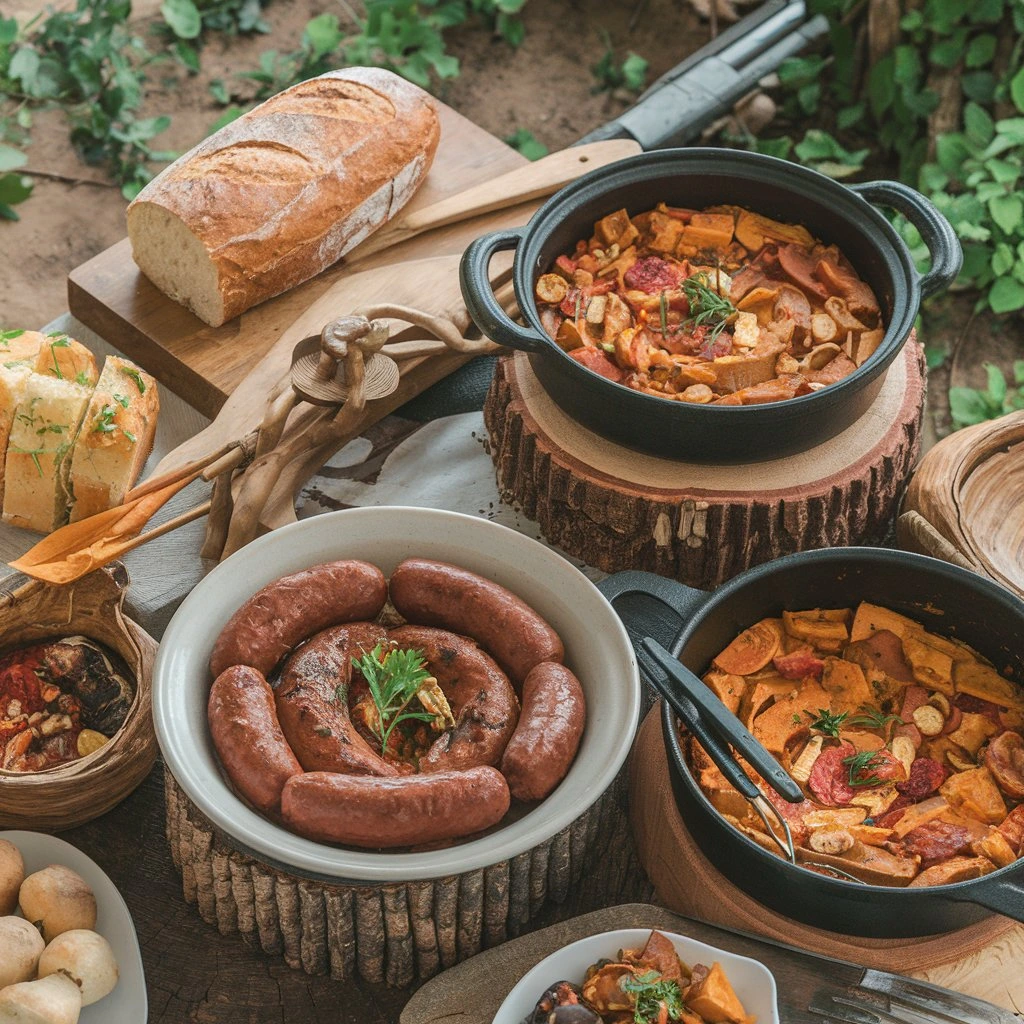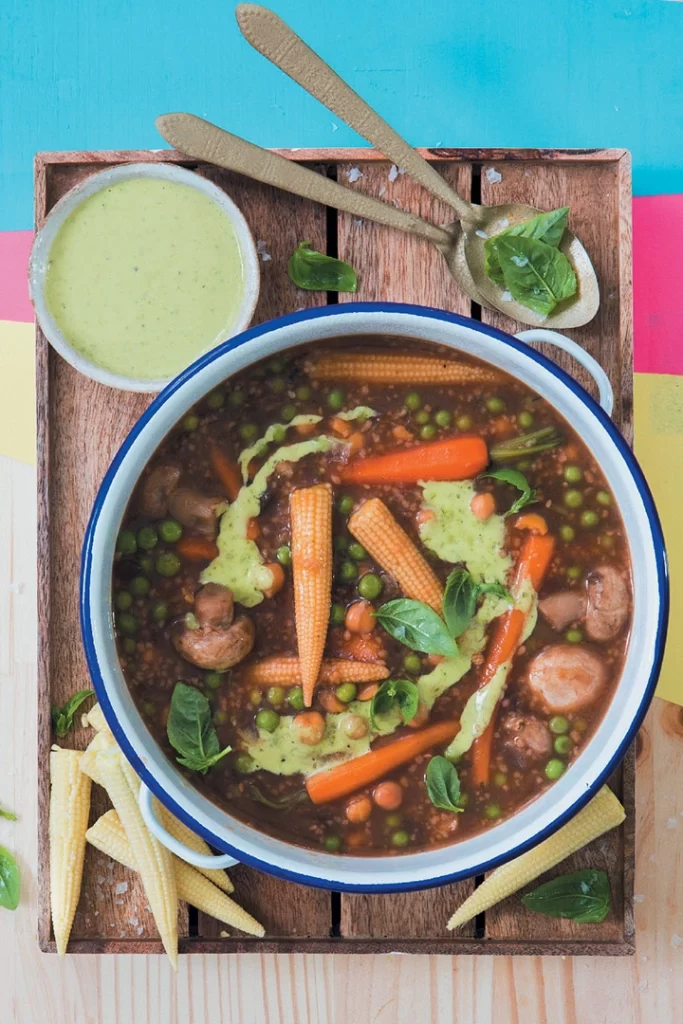The Best Traditional South African Recipes Made Vegan

Learn about the best traditional South African recipes made vegan.
It’s me again, your guide on this delicious journey into the plant-based world.
I’m excited to share something close to my heart.
I’ve made some tasty, comforting traditional South African foods into plant-based dishes.
South African food has a rich history and amazing spices. Its dishes are comforting. And trust me, you can experience all that magic without relying on animal products.
So, let’s dive in, shall we?
Why Explore Vegan Traditional South African Recipes?
Before we get into the details, you might wonder, “Why veganize traditional South African food?”
That’s a fair question!
It’s about celebrating the fantastic flavours I grew up with. They align with my commitment to plant-based living.
Also, I’ve found that plant-based versions of these classics boost creativity and often lead to healthier, more sustainable meals. They also maintain the essence of the originals.
Ultimately, it’s a win-win!
Boerewors, But Make It Plant-Based
Let’s tackle one of the most iconic dishes: Boerewors.
That spicy, coiled sausage is practically synonymous with South African braais (barbecues).
Some may find a vegan Boerewors impossible. But I’ve seen amazing ways to recreate its taste and texture.
You can use vital wheat gluten or seitan as the sausage base. With the right herbs and spices, it perfectly mimics the original flavours and textures!
Plus, it is hard to distinguish between the right amount of smoky flavour and the grilling technique! I love this with some homemade chutney and crusty bread.
A Hearty and Warming Vegan Potjie
Another South African staple is the Potjie. It is a hearty stew cooked in a three-legged cast-iron pot over an open fire.

Source: Food and Home Magazine
It’s a slow-cooked masterpiece and lends itself perfectly to plant-based substitutions.
Importantly, you’ll still get that depth of flavour by using layers of colourful vegetables like potatoes, carrots, squash, and beans.
I love adding dried mushrooms and liquid smoke. They give the mix the deep, savoury taste of traditional versions.
This way, we don’t have to miss out on the comfort and flavours! Indeed, a plant-based potjie can be just as hearty, satisfying, and unforgettable as the classic.
Veganizing Biltong and the Challenge it Presents
Okay, let’s talk about biltong, the king of South African snacks! Biltong, the air-dried cured meat, is one of the trickier dishes to veganize, I’ll admit. But don’t let this discourage you from tasting the “biltong” experience.
Alternatively, we can explore options using marinated and dried mushrooms, tempeh, or even eggplant strips, all seasoned with coriander, pepper, and other key biltong spices.
While it might not replicate it exactly, it does satisfy that craving for something savoury, salty, and chewy. Therefore, the key is in that spice mix and getting that right!
Traditional South African Bredie: A Deliciously Vegan Option
Now, onto Bredie! Bredie is a slow-cooked stew, usually made with lamb or beef, but can be easily adapted for a plant-based diet.
Source: Pants Down Aprons On
For me, this is where lentils and mushrooms genuinely shine. Their meaty textures, when braised, make for the best substitution. I use them to build that base flavour to replicate the dish.
The plant-based version contains great tomato flavours, spices, and aromatics.
Furthermore, you can serve it alongside a big dollop of vegan sour cream or coconut yoghurt for extra richness!
Embracing Plant-Based Cooking with South African Flare
Here are some easy ways to turn traditional South African dishes into tasty vegan meals.
Ultimately, this is all about experimentation and finding what you enjoy most.
Don’t be afraid to get creative with spice in the kitchen. Try some alternatives you wouldn’t normally consider.
This is the beginning of the plant-based deliciousness you can make in the kitchen.
I hope this post inspired you to try out some delicious recipes!
Have you tried any other veganized South African favourites?
Let me know in the comments! I love hearing from you all, and don’t hesitate to share your tips. Happy cooking!

2 thoughts on “The Best Traditional South African Recipes Made Vegan”